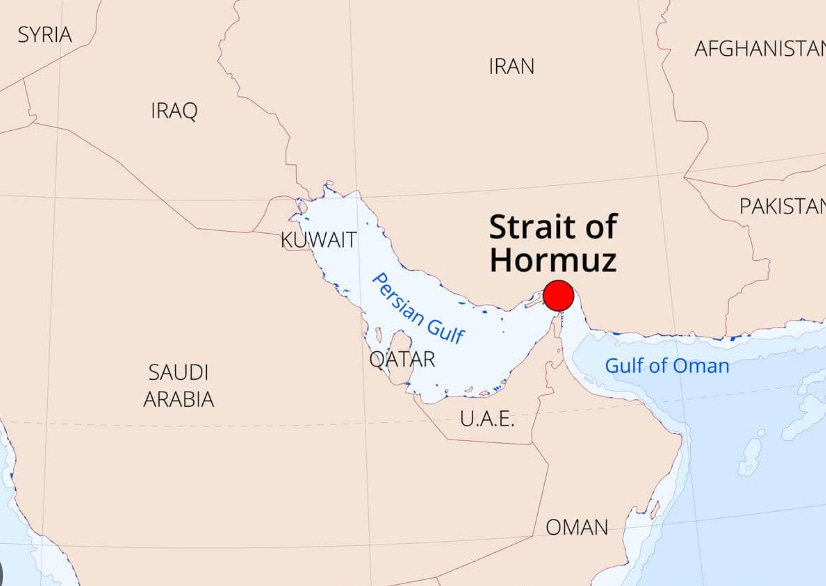Israel quickly established air superiority over Iran, attacked its nuclear facilities and air defenses, killed its top military leaders, and executed limited attacks on Tehran’s oil production, refining, and exporting infrastructure. Oil prices have risen 10%, but the all-out destruction of Iran’s oil industry would send prices soaring, would bankrupt some oil-importing countries, and would provide billions more income for oil exporters, including Putin, who rely on energy to finance wars. However, America (with Canada) is now the world’s biggest oil and liquefied natural gas exporter and, along with ally Saudi Arabia, increased oil production just before Israel started attacking to prevent prices from skyrocketing. Additionally, the U.S. Strategic Petroleum Reserve is the world’s largest, and such oil dominance has shifted the geopolitical balance of power. “We have turmoil in the Middle East, and in the past, we would’ve seen [oil] prices shooting up. It’s not happening now,” said energy expert Daniel Yergin. “Vladimir Putin thought he could use the energy weapon—cut off gas to Europe, and the coalition would shatter. It didn’t happen, and it’s because of liquefied natural gas (LNG)—and a significant part of that LNG [liquefied natural gas] comes from the world’s largest exporter of LNG, which is the United States.”
Iran, a petro-state, has threatened to close the Strait of Hormuz -- where one-third of the world’s seaborne crude oil passes daily. However, it tried and failed to do this before because the Strait is 35 miles wide at its narrowest point and because the U.S. Fifth Fleet, equipped with missiles and personnel, remains within range. But Iran’s Houthis in Yemen have disrupted oil shipments for months by shooting at oil tankers and ships in the Red Sea. But they just signed a ceasefire deal to stop attacks against American ships. This workaround arrangement upset Israel and European allies because they were excluded from the truce, and their boats remained targets.
This latest Israel-Iran war won’t be brief and is aimed to stop Iran’s nuclear bomb program. Iran denies this, but the United Nations and other experts have documented its existence and scale. Estimates are that Tehran has enough enriched uranium to build 15 atom bombs, and intelligence sources said the country was days away from weaponizing this by adding it to missile warheads. That is why Israel attacked.
Notably, Russia has not waded into helping its ally Iran because it’s bogged down in Ukraine, where its military is being degraded daily. Politically, Moscow is happy that Israel’s confrontation with Iran has once again pushed its Ukraine war off the front page for a while. However, Saudi Arabia’s role is crucial, and the Kingdom raised oil production levels just before the Israelis first attacked, likely at the request of Trump, to mitigate price hikes and inflation. The U.S., on the other, is openly supporting Israel, has put its forces on alert throughout the region, and is intercepting Iranian missiles launched against Israel, a U.S. official confirmed. Iran threatened U.S. military facilities if America waded in, without effect. “If we are attacked in any way, shape, or form by Iran, the full strength and might of the U.S. Armed Forces will come down on you at levels never seen before,” stated Trump.
Despite evidence, condemnation, and rhetoric, Tehran’s Ayatollahs retaliate heavily against Israel and refuse to admit to building a nuclear bomb. Trump cavalierly addressed the regime after the bombing began and said: “You missed the opportunity to make a deal.” The Wall Street Journal spoke for many when its editorial team wrote on June 13: “Israel’s air campaign against Iran’s nuclear program on Friday morning local time is a watershed moment for the Middle East and, if successful, a favor for the world. The Jewish state deserves American support as the strikes continue.”
Bombs are essential to undermine and possibly replace the Iranian regime. However, the priority must be to destroy both Iranian and Russian oil income, and this has not been addressed effectively. For example, since the start of Russia’s invasion of Ukraine in February 2022, Moscow has made more than three times as much money exporting hydrocarbons than Ukraine has received in aid from its allies. Oil bankrolls the warmongering, and while it is a tricky task, stopping the flow from these poisonous petro-states is more achievable than ever due to the dominance of the United States and its Persian Gulf state allies in terms of production and oil reserves.
Facilities, production platforms, and pipelines will be targeted. To avert massive oil price leaps, Saudi Arabia and the U.S. must continue to pump more oil into the market. Ukrainians have been effectively sabotaging Russian refineries, ports, and pipelines, and Europe has finally imposed sanctions that target hundreds of oil tankers, part of Moscow’s “shadow fleet” that covertly ship oil worldwide. The EU has blacklisted 75 more individuals and companies involved in Russia's military-industrial complex, as well as 30 firms, including some based in Kazakhstan, Serbia, Turkey, Uzbekistan, Vietnam, and the United Arab Emirates (UAE), suspected of supplying Moscow with dual-use goods that the West has prohibited. It’s also banned the export of EU-made chemicals used to produce missiles, then targeted intermediaries in China and the United Arab Emirates, which helped the Kremlin evade restrictions on oil shipments.

It is also essential to constrain or punish some of the West’s allies. Singapore, for instance, hosts fleets of Chinese ships that wait for delivery of sanctioned Iranian oil and then transport it to Chinese ports. This allows Beijing to bankroll Iran’s war against Israel and support terrorist proxies such as Hamas, Hezbollah, the Houthis, and others. Then there’s India, where middlemen import illicit Russian oil, refine it into gasoline, and then ship it back to Europeans at hefty profits, thus bypassing EU bans on Russian imports.
All cheating and loopholes must be closed. Hopefully, the G7, which is deliberating this week, will force Russia to sell oil at $45 a barrel or lower, down from the current cap of $60 a barrel imposed months ago. “The decision to lower the Russian oil price cap from $60 to $45 will hit Putin hard in the wallet,” Senator Lindsey Graham, Republican of South Carolina, wrote. More importantly, however, the Senator has a “neutron bomb” bill before Congress that would impose 500% tariffs on all buyers of Russian oil, such as China and India, and pro-Russian European nations, such as Serbia and Hungary, that still buy Russia crude despite its war next door. Trump should approve passage and use it as leverage.
Not surprisingly, oil and gas are also at the center of tariff talks between the U.S. and Europe that could permanently destroy Russia’s war machine. Washington wants the European Union to purchase billions of dollars worth of weapons, ammunition, equipment, and military expertise from the United States for years as it develops a continental armed force. It also wants Europe to replace all Russian natural gas and oil with American LNG and oil. This would meet two primary American policy objectives: To assist Europe in assuming responsibility for financing Ukraine’s war and its security, as well as to reduce Europe’s trade surplus of roughly $230 billion per year with the United States.
Interestingly, Israel’s chutzpah matched Ukraine’s audacious attack against Russia’s bomber fleet this month. Fighter jets hit targets, but Israeli spies smuggled missiles and secretly hid explosive drones deep inside Iran ahead of time to destroy specific weaponry and defense systems, then tricked its most important military leaders into gathering for a meeting so they could be wiped out. Both were colossal blows to the two fanatical petro-states that intend to destroy Ukraine, Israel, America, and Europe.
Iran must never become an atomic power because it will destroy Israel, control the world’s most important oil region, and be able to hold the global economy hostage with its partner Russia. As Israeli Prime Minister Benjamin Netanyahu explained the decision to attack this week: “I told our security leadership: We have no alternative but to act swiftly,” he said. “We can’t leave these threats for the next generation. If we don’t act now, there won’t be a next generation.”
NOTE TO READERS: Please consider supporting my writing by subscribing to my Substack. A paid subscription grants access to all of my articles year-round.





With Syria and now Iran no longer able to act as Putin's puppet, the days of paying hefty Kremlin premiums for oil/gas are over. Let that industry enjoy conventional market forces just like every other industry. And thankfully, it will also put an end to the folly of "green" energy on which billions of $ and millions of lives (mostly bats) have been lost.
Is it only me, or does anyone else shudder at the vast tentacles of the petrochemical stranglehold on this struggling planet? And all of us, natch. The up to the armpits involvement in and dependence on the industry by not only international corporate, but governmental entities is truly, truly frightening. Especially given how many of the players are autocrats? Is one reason--perhaps a major reason--for the growth of autocracy throughout the world to be found in this incestuous partnership?